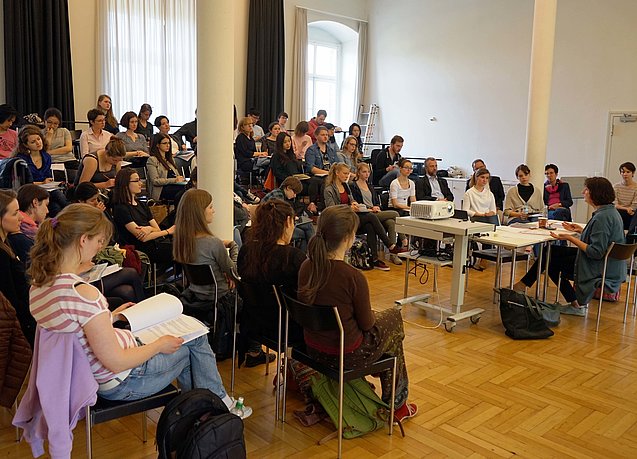music management

| Professor | Prof. Dr. phil. Matthias Schröder |
So that the musicians of tomorrow can actively tailor their professional life to their expectations, they receive basic teaching in music management as part of their degree. This teaching does not only cover the traditional job profiles of orchestral musician, concert soloist or music teacher, but focuses on the entire spectrum of the wide-ranging field of activities. Reality shows that the career paths of music graduates do not follow a typical pattern, but rather resemble a mosaic. Careers may alternate between various stages. Part-time employment is widespread and can be beneficial in terms of individual career planning. It opens up space for other creative fields of work, such as music journalism, music education, concert management or music production.
The music management courses react to this change within the world of employment. Topics such as contract law, self-employment, negotiation and interview training, finance, tax and copyright are on the agenda, as well as basic training in marketing and advertising, time management and project work. These are tackled using practical questions such as "How do you write a good musician's biography?" or "What does a good artist's photo look like?".
In line with the range of different fields of study, seminars that are primarily geared towards orchestral instrumentalists, singers or future freelancers are offered. Special topics such as CD production, the work of a concert agency or pension provision for musicians are examined in excursions, lectures and workshops, with top-class guest speakers enriching the wide range of diverse teaching on offer.























